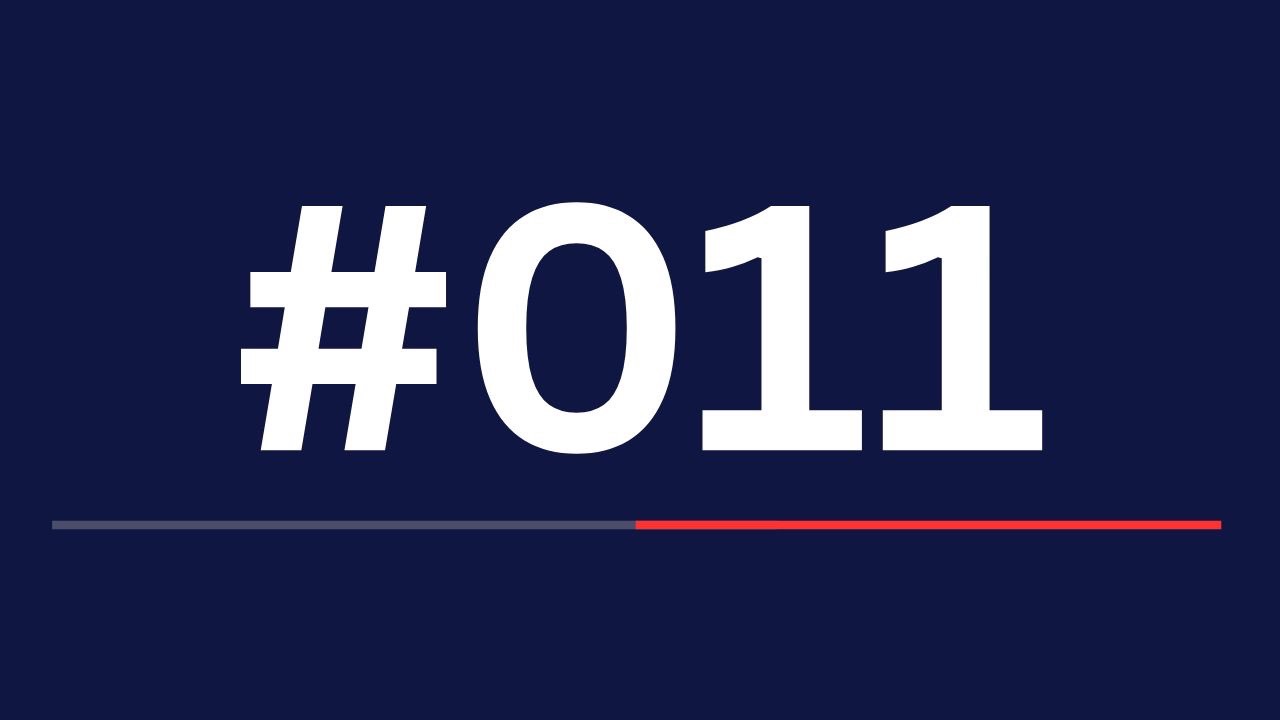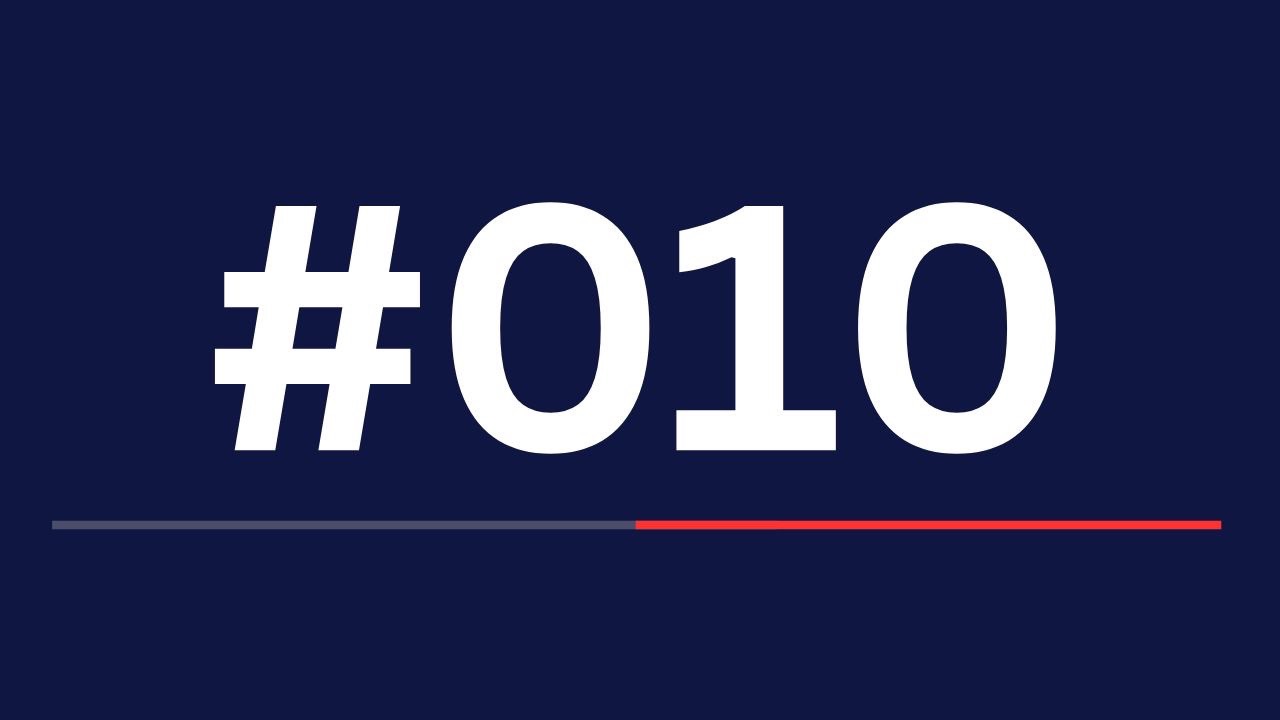Most Expats Miss This About Healthcare in Thailand
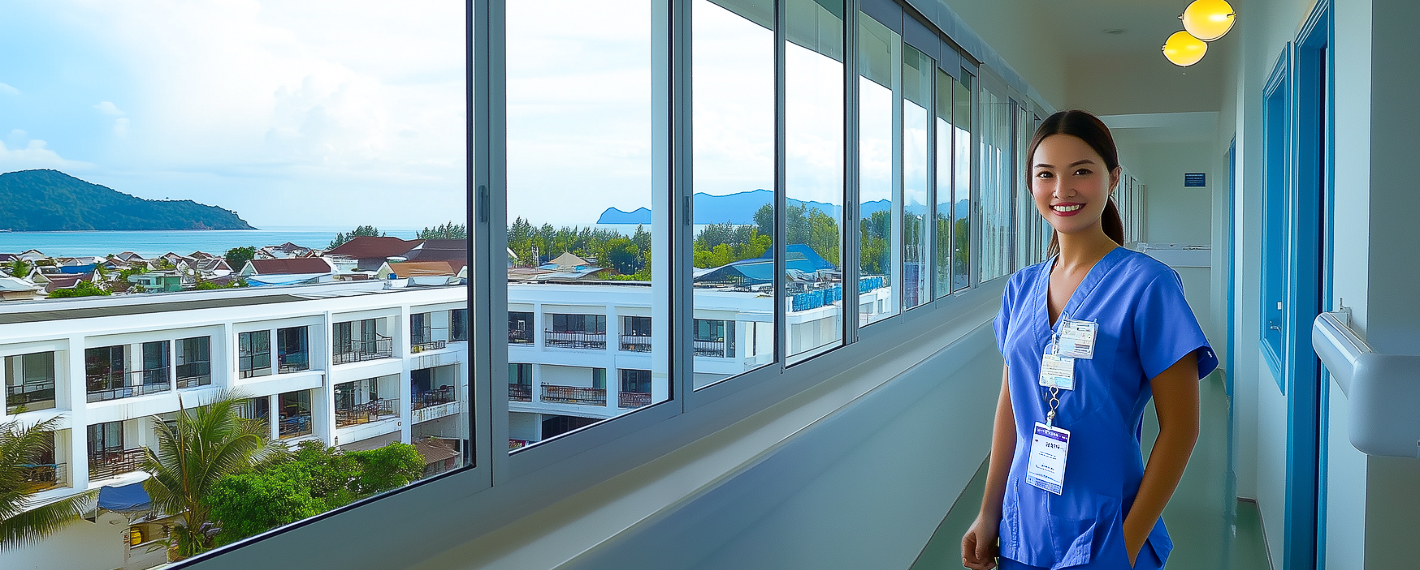
When people dream about moving to Thailand, they picture pristine beaches, delicious food, and a lower cost of living.
But what almost no one talks about until it's too late... is healthcare.
Ironically, Thailand's medical system is one of its biggest strengths… but only if you understand how to navigate it smartly.
Today, let’s break it all down: how to budget for healthcare in Thailand, avoid surprises, and protect both your health and your wallet.
1) Thailand's Two-Tier Healthcare System:
Thailand operates a two-tier system: public hospitals and private hospitals.
Public Hospitals:
- Excellent doctors, but long wait times for non-urgent issues.
- Lower costs, but basic service levels.
- Accessible if you're paying out of pocket — but unless you're legally employed and contributing to Thai Social Security, you won't get "free" public care.
Private Hospitals:
- World-class facilities like Bumrungrad, Bangkok Hospital, and Samitivej.
- English-speaking staff, short wait times, cutting-edge equipment.
- Costs are higher, but still far below Western rates.
When I first walked into Bangkok Hospital with an ear infection, I saw three specialists and walked out an hour later with medication for under $100.
In my home country of Canada, that same situation would have taken weeks.
That's how good private healthcare is here.
2) What Private Healthcare Actually Costs:
Here's a real-world look at typical private care costs in Thailand:
Minor Treatments:
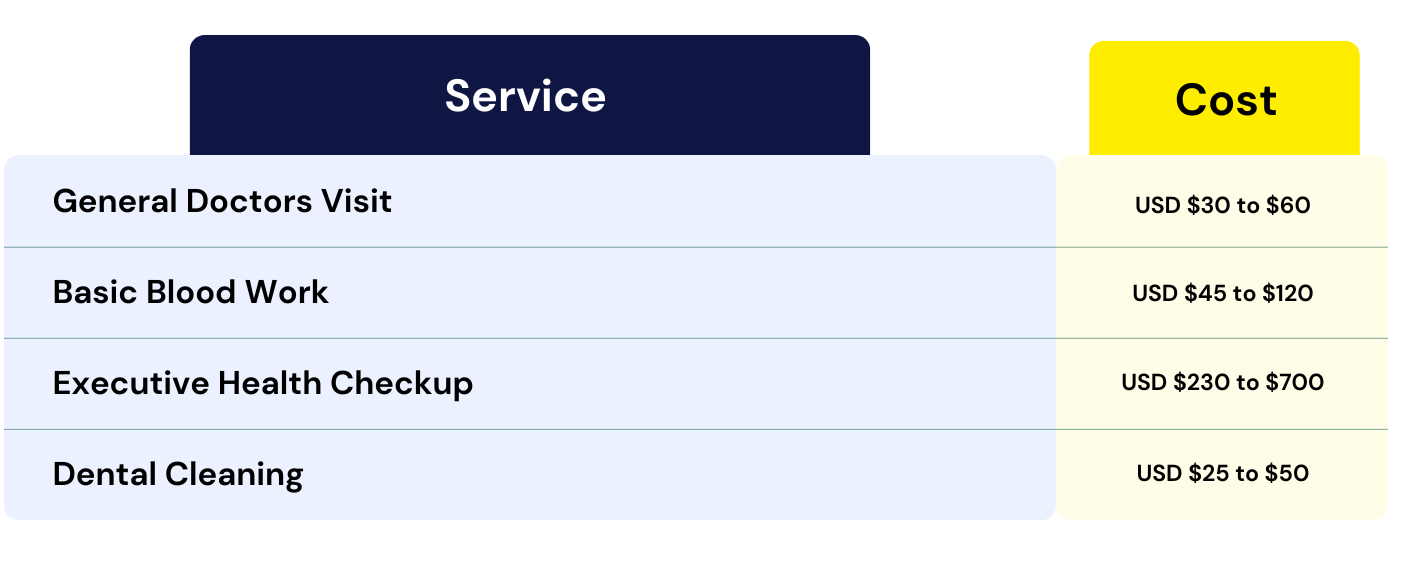
Major Treatments:
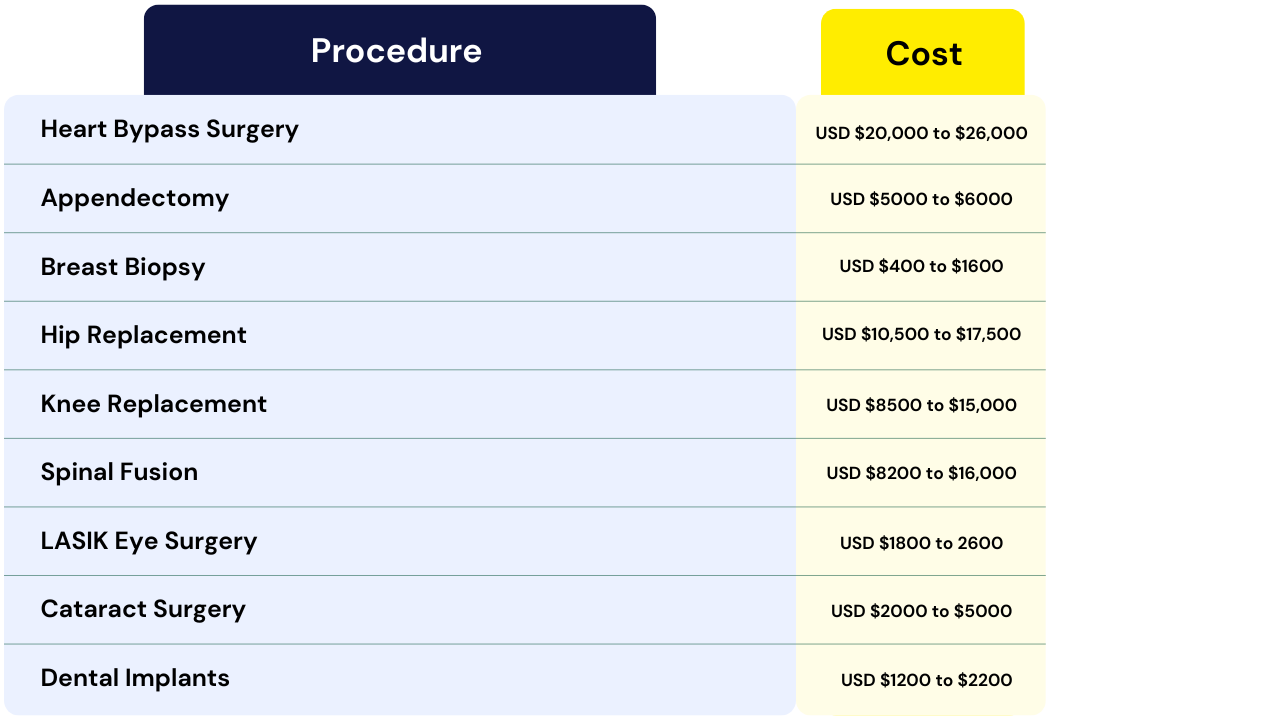
3) Should You Buy Health Insurance?
For most expats, the answer is yes. But it does come with some nuance.
Thailand has different health risks than many Western countries:
- Traffic accidents (motorbike injuries are extremely common)
- Tropical diseases (dengue fever)
- Air pollution (Bangkok and Chiang Mai during burning season)
While medical costs are lower, a major emergency could still cost tens of thousands of dollars.
Most expats I know choose some level of private coverage for peace of mind.
That said, there are some interesting cases where Expats don't choose to purchase insurance and it’s important to acknowledge them.
I have colleagues down in Koh Samui who are a retired American couple deep into their 70s and they took a different approach...
They have Medicare + a private U.S. supplemental plan that covers them for their first 90 days abroad.
Since they spend eight months per year in Thailand, they face just a five-month coverage gap. Given their financial resources, they've decided to self-insure during that gap, paying out-of-pocket for any issues, and would return to the U.S. for catastrophic care such as a cancer diagnosis.
It’s not risk-free — but for them, it’s the most efficient solution given how expensive annual insurance policies can be for those in that age bracket.
They did their math and made their own assessement with full acknowledgement of the risks at play.
The key takeaway: your healthcare setup should match your life setup.
4) Sample Annual Healthcare Budgets:
Based on hundreds of conversations with expats all over Thailand, here's what some realistic budgets might look like:
Minimalist Approach:
Estimated Annual Cost: 40,000–60,000 THB
- Very basic, catastrophic insurance coverage (~20,000 THB/year)
- Basic annual physical (~5,000 THB)
- 2–3 doctor visits (~5,000 THB)
- Dental cleaning each year (~1,500 THB)
- Self-funded minor emergencies (~10,000 THB)
Best suited for: Healthy, younger expats willing to self-pay for routine care.
Balanced Approach:
Estimated Annual Cost: 80,000–150,000 THB
- Solid insurance coverage (~50,000–100,000 THB/year)
- Comprehensive annual checkup (~15,000 THB)
- 4–6 doctor/specialist visits (~10,000 THB)
- Expanded dental care (~10,000 THB)
- Buffer for minor procedures (~15,000 THB)
Best suited for: Remote workers, families, and retirees who want reliable protection.
Premium Approach:
Estimated Annual Cost: 200,000–500,000 THB
- Top-tier insurance (~150,000–400,000 THB/year)
- Executive health screening (~25,000 THB)
- Regular specialist care (~25,000 THB)
- Premium dental (~20,000 THB)
- Wellness services (~20,000 THB)
Best suited for: Older retirees or high-net-worth individuals who want the best care, no compromises.
5) Planning Your Healthcare Budget:
Smart healthcare planning includes:
1. Maintain catastrophic coverage: Protect yourself from the worst-case scenarios.
2. Build a healthcare fund: Especially if you plan to self-insure for minor costs.
3. Get a full health screening upon arrival: Catch problems early, not after they escalate.
4. Research local options: Quality varies significantly by city and region.
5. Confirm insurance requirements for your visa: Some visas (like Non-OA or LTR) mandate coverage.
Remember, premiums and medical needs will increase with age. What works at 50 will almost certainly need adjustment at 60, 70, and beyond.
Solid Healthcare Planning is Just the Beginning
If you're serious about building a smooth, stress-free life in Thailand, healthcare is just one piece of the puzzle.
Whenever you're ready, there's 3 ways I can help you:
1. Get your Visa sorted without the stress: Your entire Thai visa application is handled from start to finish. No paperwork headaches, no Immigration office chaos. Whether you're retiring, working remotely, moving with your family, or starting a business, we get you approved quickly so you can focus on actually living here.
2. Learn Thai that actually sticks: Join Teacher Fah's Thai Language Challenge. A 100-day structured program that's already helped over 900 expats build real speaking skills they can use daily. If you'd like to see my progress after her 100-day challenge so you know what you can achieve, just watch this video here. Enrollment is limited to 50 students per cohort to ensure personal attention. If doors aren't open right now, you can join the waitlist for first access.


